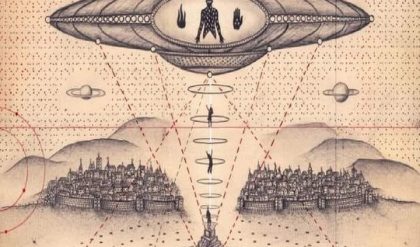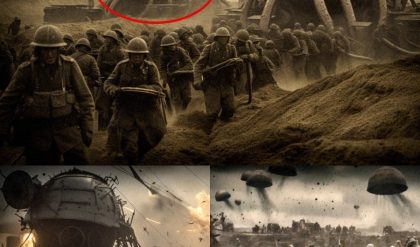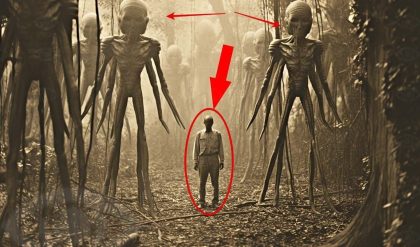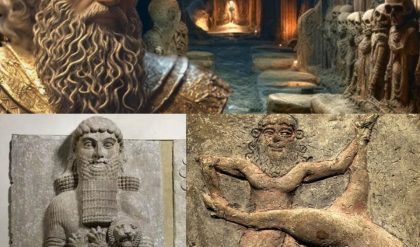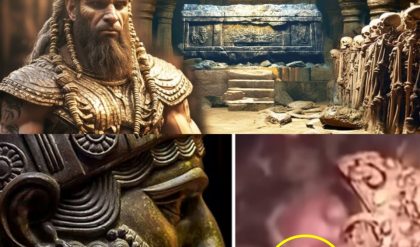In a stunning archaeological discovery, researchers have unearthed a mass grave containing the skeletal remains of 80 individuals, their wrists bound above their heads, in an ancient cemetery near Athens, Greece. This find is believed to shed light on a tumultuous period in Greek history, potentially revealing the fate of rebels who may have attempted a coup during the seventh century BC.

The Unearthed Skeletons: A Gruesome Scene from Antiquity
The skeletons were discovered in a mass grave within the ancient cemetery of Phaleron, a significant burial site used during the Archaic period of Greek history. The condition in which these skeletons were found is both haunting and telling: each had their wrists shackled, indicating that they were likely prisoners or captives who met a violent end.
The positioning of the bodies, with their arms bound above their heads, suggests that these individuals were executed in a brutal manner. This grim discovery has led archaeologists to believe that they could be the remains of rebels or political prisoners who were part of an attempted coup in ancient Athens.
Historical Context: A Time of Political Upheaval
The seventh century BC was a period of significant political unrest in Greece, particularly in Athens, where the city was transitioning from the rule of aristocrats to the emergence of early democratic principles. During this time, power struggles and political coups were not uncommon as different factions vied for control.
One of the most notable events from this era is the attempted coup by Cylon, an Athenian noble who sought to seize power in the city. Though Cylon’s coup ultimately failed, leading to the execution of his followers, the details of the event remain murky. The discovery of these skeletons raises the possibility that they could be the remains of Cylon’s supporters, offering new insights into this pivotal moment in Greek history.
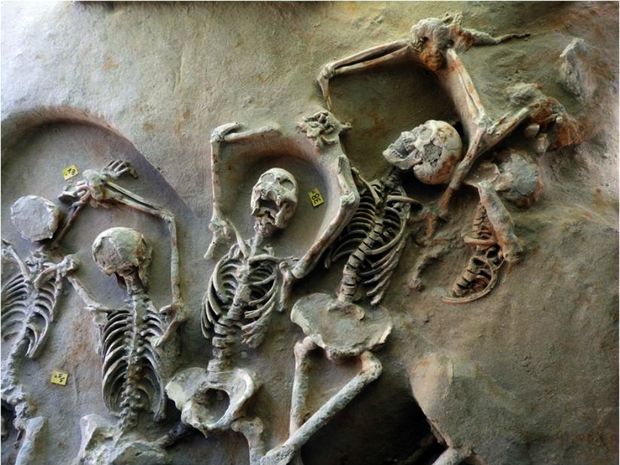
Archaeological Evidence and Analysis
The discovery of these skeletons was part of a larger excavation project at Phaleron, which has revealed numerous burials from various periods. However, the bound skeletons stand out due to their unusual positioning and the apparent violence of their deaths.
Preliminary analysis of the bones indicates that these individuals were young men, a demographic consistent with what one might expect of rebel fighters. The shackles found on their wrists are also of particular interest, as they suggest a method of restraint used for prisoners, possibly those awaiting execution.
Further examination, including DNA analysis and isotopic testing, is expected to provide more information about the origins of these individuals and their possible connection to the historical events of the period.
Implications for Understanding Greek History
If these skeletons are indeed linked to Cylon’s coup or a similar rebellion, their discovery could provide concrete archaeological evidence of a significant historical event that has long been known only through ancient texts. This would not only confirm aspects of the historical record but also offer a more detailed understanding of the social and political dynamics of ancient Athens during the Archaic period.
Moreover, this find could contribute to the broader understanding of how political power was contested in ancient Greece and the consequences faced by those who challenged the established order.
Conclusion: A Possible Chapter of Greek History Unearthed
The discovery of these 80 bound skeletons near Athens is a remarkable archaeological find that may uncover a lost chapter of Greek history. As researchers continue to study the remains and their context, the world awaits more revelations about the identities of these individuals and the turbulent times in which they lived.
This mass grave serves as a somber reminder of the often violent struggles that shaped the course of history and the human cost of political ambition in the ancient world.
